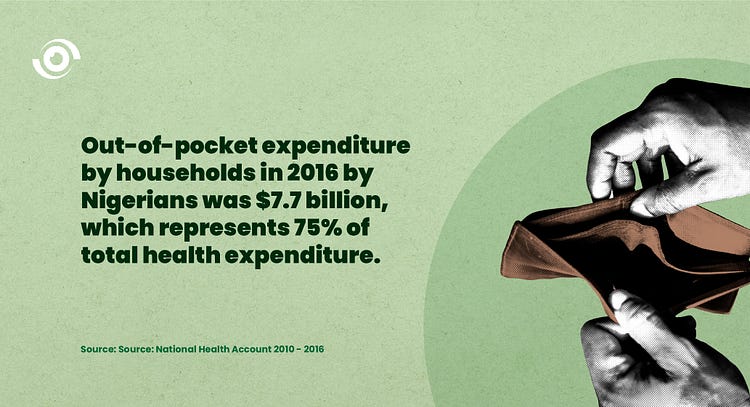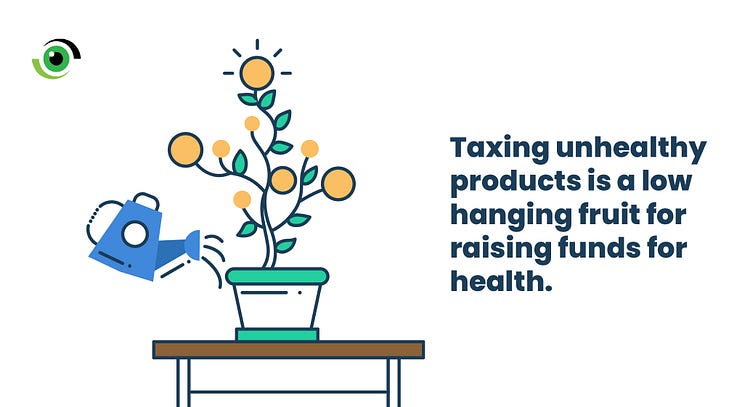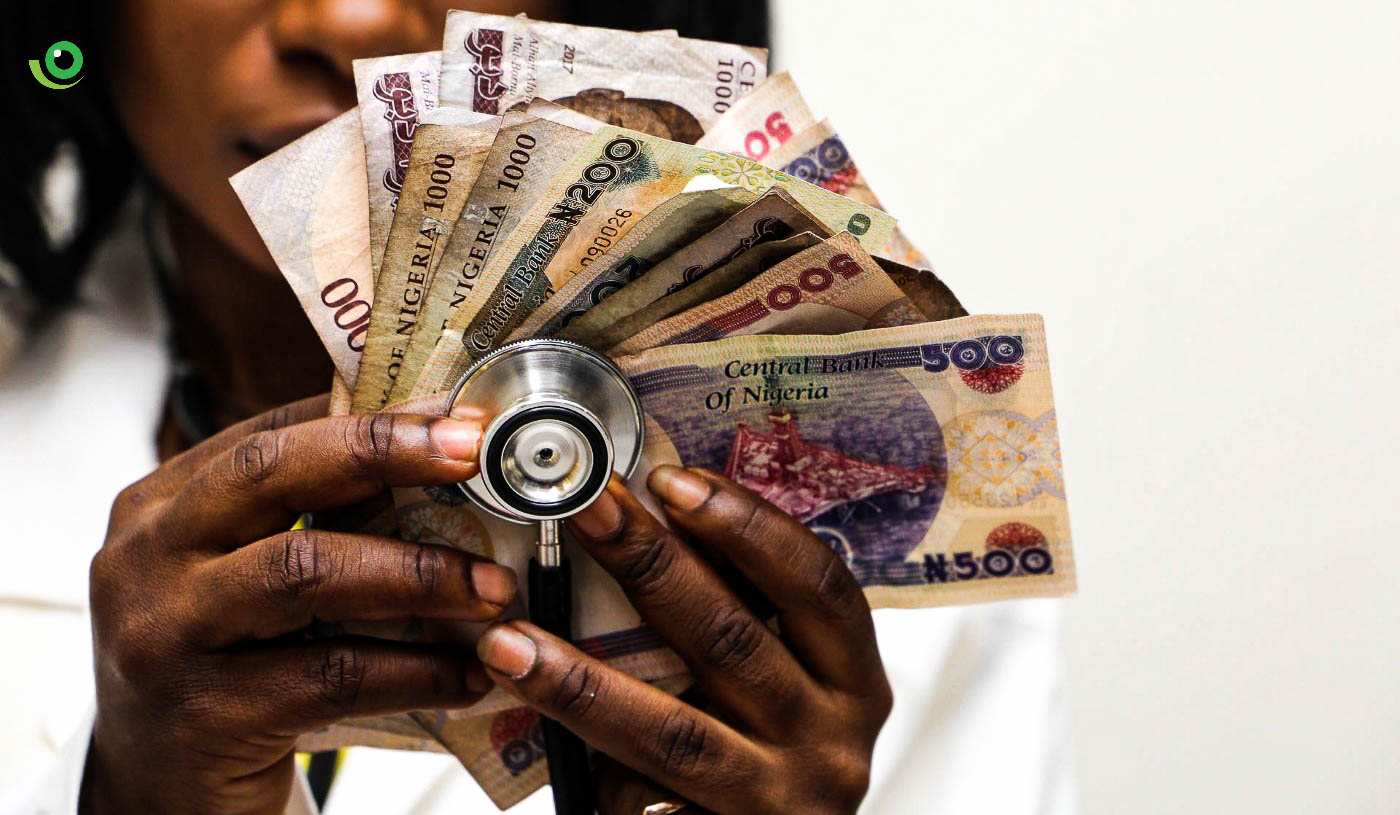Achieving Universal Health Coverage (UHC) is largely dependent on how a country finances its health system. Since the Abuja Declaration in 2001, Nigeria has been unable to allocate at least 15% of its national budget to health care therefore leaving the health system grossly underfunded. The health sector relies heavily on donor funding, meaning that the exit of international partners will leave it more vulnerable than ever before.
Nigeria’s total health expenditure is derived from both health allocations and allocations for the Basic Health Care Provision Fund, which is 1% of the Consolidated Revenue Fund (CRF). Since the inception of the BHCPF however, its allocation has always been below the earmarked 1% of the CRF. In 2020, the BHCPF allocation was about 50% less than the value of 1% of the CRF.
Out-of-pocket payment for health
Most Nigerians cannot afford the most basic health insurance package causing them to make out-of-pocket payment for health emergencies which leaves them one step away from falling into poverty. A review of the 2010–2016 national health accounts, revealed that out-of-pocket expenditure of households in 2016 was $7.7 billion, representing 75% of Nigeria’s total health expenditure. Combined federal, state, and local government expenditure was $1.4 billion, while international donor support was $1.1 billion.

The COVID-19 pandemic has highlighted the importance of a strong health sector globally and in Nigeria in particular. In the words of the Director General of the World Health Organisation, Dr. Tedros Adhanom Ghebreyesus — “without health, we have nothing”. A population of almost 201 million people should not be left this vulnerable and helpless. There must be a way to sustainably finance health, away from out-of-pocket expenditure. It is evident that Nigeria needs to adopt innovative health financing strategies such as results based financing, impact investing, catalytic funding, and new taxation channels.
Financing healthcare through sin taxes
A sin tax is a tax levied on the consumption of potentially harmful goods like sugar-sweetened beverages (SSBs), tobacco and alcohol, with the aim of reducing consumption while raising additional revenue. It also aims to improve population health by ultimately reducing the consumption of these products by making them expensive to purchase. The effects of these harmful products contribute to Nigeria’s disease burden. As some other countries have done, can Nigeria finance health by taxing these products, while reducing disease burden?
Strategies implemented in the Philippines show that sin tax can be effectively used to finance healthcare programs for the poor. The 2012 Philippines Sin Tax Law (STL) was set up to save lives by reducing the intake of harmful products, but ultimately making funds available to drive the attainment of universal health coverage.
US$3.9 billion was generated in incremental excise tax revenues during the first three years of implementation, far exceeding government projections. About 80% of this increase was by virtue of tax on tobacco. From 2013 to 2014, the number of poor and near-poor families enrolled in the National Health Insurance Program increased from 5.2 million to 14.7 million. This grew to 15.3 million by the end of 2015, almost tripling the coverage of the poor and near poor. Sin tax revenues were also subsequently used to subsidise the insurance coverage of senior citizens, further expanding access to care for the vulnerable.

What lessons can Nigeria learn from this? Nigerians consume large amounts of alcohol, tobacco and SSBs. A sin tax presents an opportunity to tax these products, and in turn, promote healthy lifestyle and generate funds.
In a recent article, Dr. Olumide Okunola, a senior health specialist at the World Bank posits that introducing or increasing taxes on health-damaging products reduces their consumption, and as a result, lowers long-term morbidity and mortality from a wide range of non-communicable diseases, including lung and cardiovascular diseases, metabolic conditions and cancer. In the long run, reducing the incidence and prevalence of such diseases not only improves population health, it also improves overall economic productivity.
The Philippines example has shown that sin taxes can help improve a country’s health sector. But the country must have a transparent system to manage and monitor the funds to ensure that they are used for the purpose for which they were earmarked. Judging by the level of accountability with public funds in Nigeria, one question that comes to mind is, will the funds generated from taxing unhealthy products actually be used to finance health?
The COVID-19 pandemic slowed Nigeria’s journey towards achieving UHC and this presents an opportunity to get back on track. Health financing is one of the building blocks of a robust health system and taxing unhealthy products is a low hanging fruit for raising funds for health. If spent well, sin tax presents itself as a win for the poor and vulnerable who are already living below the poverty line and can’t afford basic health care services.



This was a very nice read. Hopefully it will be seen by the appropriate ministry and implemented as soon as possible. Weldone